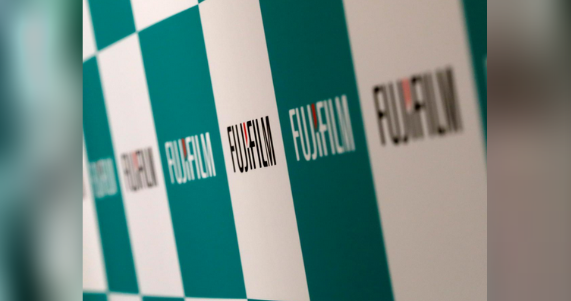
Fujifilm Holdings' logos are pictured ahead of its news conference in Tokyo, Japan January 31, 2018. REUTERS/Kim Kyung-Hoon
Deason and fellow shareholder Carl Icahn have been fighting to stop Fujifilm from taking over Xerox in a $6.1 billion deal, saying the transaction “dramatically” undervalued Xerox and “disproportionately” favored Fuji.
Xerox has countered the claims saying that the merger seemed to be the best path for the company after a year of exhaustive examination of a number of alternatives.
Fujifilm plans to combine the U.S. company into their existing joint venture, Fuji Xerox, in which it owns a 75 percent stake. The joint venture has existed in various forms since 1962 and the current structure dates to 2001.
The agreements have an undisclosed “crown jewel” lock-up right that gives Fuji control over Xerox’s intellectual property and manufacturing rights in the Asia-Pacific market if Xerox sells a 30 percent stake to another suitor, Deason said.
“The ‘end game’ for Xerox - a sale to Fuji - was decided 17 years ago with this undisclosed ‘crown jewel’ lock-up right granted to Fuji, and shareholders had absolutely no clue,” according to Deason’s complaint.
A “crown jewel” agreement is an offer to sell the stock or assets of a company to an investor most desirable to management - to prevent hostile takeovers.
Xerox said that Icahn had been privy to the details of the agreement through his representative, Jonathan Christodoro, on the Xerox Board, while Deason had so when he sold his company, ACS, to Xerox in 2009.
“These documents have since been publicly disclosed. For any of them to assert that these agreements were ‘shrouded in mystery’ is disingenuous, at best,” the company said in a statement made earlier on Tuesday, before the lawsuit was made public.
“It is unfortunate that Mr. Deason is seeking to interfere with Xerox shareholders right to decide and is relying on meritless legal claims,” a Xerox spokesman added, in response to Reuters questions.
Deason also included former Xerox chief executive Ursula M. Burns in the lawsuit, saying she was chairman of Xerox between May 2010 and May 2017 and had full knowledge of the Fuji-Xerox joint venture agreements.
The U.S. company had the opportunity to get out of the agreements last year after an accounting irregularity at Fuji Xerox New Zealand, but managers missed the chance, Deason said in the lawsuit filed in the Supreme Court of the State of New York.
In a letter to shareholders, who still have to approve the deal, Xerox said that walking away from the joint venture would require it to completely rebuild its supply chain, which would be extremely expensive and take years to implement.
On Monday, Icahn and Deason, who own a combined 15.2 percent in Xerox, called upon shareholders to free “the company from the shackles of the Fuji Xerox joint venture.”
Some analysts have said that Xerox and Fujifilm management seem locked into the deal and have limited options in terms of addressing Icahn’s and Deason’s opposition.
“The agreement is a binding legal document that cannot be simply wished away, renegotiated or dissolved because Mr. Icahn and Mr. Deason desire it so,” Xerox said.
Shares of Xerox were down 2.5 percent at $29.21.


